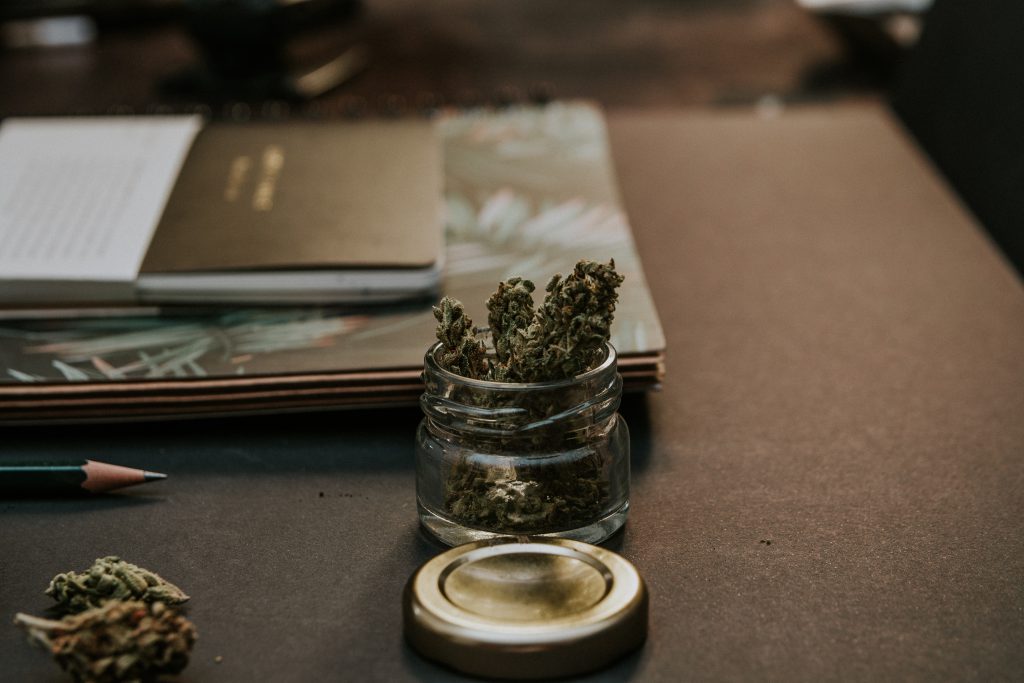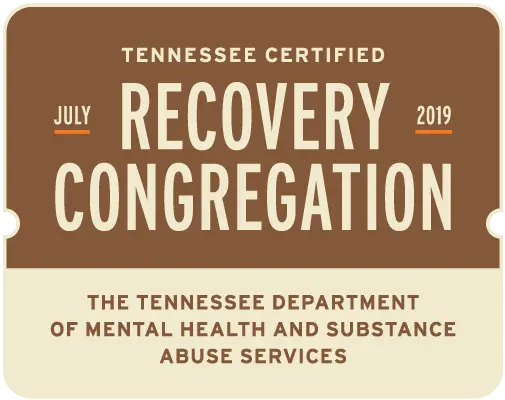Tanner didn’t mean to end up at Discovery Place. He didn’t really even mean to get sober.
Following an impromptu family intervention after threatening suicide, he hadn’t agreed to treatment, but he hadn’t not agreed to treatment either. His mother had heard about a place near Nashville on Dr. Phil that looked promising, and she wanted to check it out. With just two days’ change of clothes packed, Tanner headed north from Florence, Ala. with his mother and sister-in-law.
When Tanner woke up in a hotel room the next day he couldn’t remember why he was there. He’d forgotten the intervention and figured he was coming off another binge. But soon after, he and his family arrived at the treatment center his mother had seen on TV. Priced far outside anything they could afford, the trio started driving back to Alabama.
As they headed south, Tanner’s sister-in-law, unwilling to give up, found Discovery Place’s website on her phone. They weren’t far away. It was worth a shot.
His sister-in-law put Tanner on the phone with Nick, a Discovery Place alum and director of admissions.
“He basically just told me his life story in a summary,” says Tanner, “and I was like, ‘Oh my God, someone gets it.’”
They pointed the car back toward Burns, back toward Discovery Place, and back toward a new beginning.
Stronger pot, bigger problems
Tanner was only 19 when he arrived at Discovery Place. He would be the youngest guest on campus while he was here. And it wasn’t just his age that would set him apart initially. It was also his drug of choice. While Tanner drank and used several different kinds of drugs, it was marijuana that had taken the most from him.
Today, marijuana is the most widely used illicit drug in the United States. Now legalized for adult recreational or medicinal use in 10 states and the District of Columbia, more than 200 million Americans live in a state where they can legally purchase and use marijuana.
Alex Berenson, author of Tell Your Children: The Truth About Marijuana, Mental Illness, and Violence, reports that in the 1970s, levels of THC, the psychoactive ingredient found in cannabis that produces a high, averaged around 2% or less. THC levels today commonly hover around 20-25%, not to mention the nearly pure THC extracts that are also now available.
Not only is today’s weed stronger but the effects don’t seem to just be limited to a case of the snack attacks. A 2011 study from the Substance Abuse and Mental Health Services Administration (SAMSHA) and Drug Abuse Warning Network (DAWN) reported 1.25 million emergency department visits related to illicit drug use. Of that 1.25 million, more than 450,000 were marijuana-related.
A 2015 study published in the medical science journal The Lancet, reported that high-potency marijuana, containing 15% or more THC, could quintuple the risk of schizophrenia. And a 2016 study published in Psychological Medicine found that “continued exposure to cannabis was associated with a higher risk of subsequent violent behavior.”
Often lost in conversations about marijuana’s harmlessness or its medicinal benefits are studies like these and the voices of those for whom marijuana was, in fact, quite harmful.
While Tanner was neither psychotic nor violent, he was hopeless. Smoking up to 10 grams of pot a day, nearly half an ounce, he wanted to stop but didn’t know how.
Living a double life
Tanner grew up in a small town just outside of Florence. He was seven years old when he took his first drink, a pull off his mom’s beer at the pool. It wasn’t earth shattering, but he recognized it was something special for adults. He could see how alcohol changed them, relaxed them.
It was around this same time that Tanner was molested, a secret he never shared until just before he arrived at Discovery Place. Remembering the effect he saw alcohol have on adults, he started sneaking drinks from the refrigerator. He wanted to be changed, too—anything to quiet the guilt and shame.
 Then at 16, a friend introduced Tanner to marijuana. Growing up in a religious home and attending a private Christian high school, Tanner erred on the side of the straight and narrow. He was a leader in his church and at school. He stayed involved in everything from drama and music to football and soccer. He didn’t touch pot for a year after that first experience.
Then at 16, a friend introduced Tanner to marijuana. Growing up in a religious home and attending a private Christian high school, Tanner erred on the side of the straight and narrow. He was a leader in his church and at school. He stayed involved in everything from drama and music to football and soccer. He didn’t touch pot for a year after that first experience.
But when he did finally return to it for a second time, there was no turning back. For the next couple of years, Tanner was able to fly under the radar because of the positive reputation he maintained at church and school.
“I was able to keep those two acts separate,” he says. “I was really, really good at acting.”
Then over spring break during his senior year of high school, he and his friends were caught with marijuana. His entire class was drug tested and several of his classmates weren’t allowed to graduate.
“That was the first time I swore off drugs and alcohol,” says Tanner. For nearly five months, he kept his promise. He’d been awarded a full scholarship to a private Christian college in Montgomery and was a member of a prestigious a capella group on campus. They toured the country performing Christian music in front of thousands of people. In Tanner’s mind, he was untouchable.
“I was putting on this show of I’m this Christian guy, I’m singing in front of all these kids, putting on this big front, and I started to believe in myself.”
He was on unsteady ground. Outside of his music commitment, the thought of any real responsibility was just too much. At the start of school, Tanner broke. He started smoking pot again, drinking, and using other drugs.
Absent from class more than he was there, his behavior didn’t go unnoticed. An outgoing, sociable person coupled with his role in the a capella group meant people were watching, students and administration alike.
“I felt like I could get away with anything,” says Tanner. But the excuses would wear thin and his second chances at school were running out.
“That’s when it feels like it really started to crumble,” he recalls. The dean of the school called Tanner into her office and told him he would be drug tested. In a moment of honesty, thinking it might save him from greater consequences, he admitted to her that he would fail the drug test and that he needed help.
He did fail the drug test, his full ride was revoked, and with no way to afford school without a scholarship, Tanner left college at the end of the semester. He was headed home.
A wake up call
Back at home, Tanner was served an ultimatum. His brother, four years older and more tough love than brotherly love, told Tanner his wife was pregnant and that he would not be allowed to see his niece if he didn’t sober up.
“This was the first real, real deep glance into my soul where I knew I had a problem. Because as soon as my brother told me those words that I was not going to be able to see my niece, my first thought was, alright, I got nine months to do whatever the hell I want,” he says. “Looking back, that was a very big wake up call.”
Tanner did not sober up. Instead he’d already quickly connected with a drug dealer and was continuing to use. When Tanner’s mother found out she kicked him out of the house.
Now couch surfing, working at a hotel one town over, and with another failed attempt at school through the local community college behind him, Tanner was sinking fast. His father allowed him to move into his apartment and loaned him his car so he could get to work.
After a late shift at work one evening, Tanner’s brother, who also worked at the same hotel, saw Tanner leave with his drug dealer. His brother, who’d always stayed away from drugs and alcohol, gotten a degree in criminal justice, and would eventually become a probation officer, had had enough. He called their mother and told him what he’d seen. Tanner needed help and his family wasn’t going to give up on him without a fight.
An impromptu intervention
That same week, in a moment of desperation, Tanner reached out to a family friend, someone who was like a grandmother to him, and told her he wanted to commit suicide.
“I say there is a God and I believe in all these things, but if there truly is a God how can my life be this miserable?” he remembers asking her. “And how come I’m doing these drugs constantly even when I don’t want to anymore?”
Concerned for Tanner’s safety, the family friend hung up and called Tanner’s mother. As Tanner paced the yard around his mother’s house, his brother and sister-in-law pulled up. Another family friend showed up. Then Tanner’s father, who had been in the middle of a twelve-hour shift at work, arrived. They hadn’t planned an intervention, but it was time to act.
When your drug of choice is pot
Tanner checked into Discovery Place the next day. Despite feeling at home as soon as he arrived, a new set of challenges awaited him.
“It was hard—coming in at 19-years-old, being the youngest one there and marijuana basically my number one drug of choice. I got a lot of criticism from the guys I was in treatment with. ‘You’re not like me,’ with all these stipulations of what a drug addict and an alcoholic are,” says Tanner.
“I told them what it took you forty years to burn down, it took me three or four. I wasn’t married, I didn’t have a kid. I didn’t lose my wife, I didn’t lose the house, I didn’t really lose the job, but to me I had lost everything. None of us is the same but we’re all exactly alike.”
Just as he’d done outside of treatment at school and church, however, Tanner played the role he thought the staff at Discovery Place wanted to see. Only at Discovery Place, where all the staff are also former Discovery Place guests, everyone knows that game. They’ve played it, too. And they know that it doesn’t work here.
“I thought I had them fooled playing the good little pupil,” says Tanner. “But everyone knew. It took me three weeks to even say that I was an alcoholic.”
Despite all the consequences he’d already racked up in just a few short years, despite having threatened suicide, despite having been intervened on by his family, Tanner was still biding his time until he could leave and start using again. Then in what he calls a “God-coincidence-type-thing” the next pieces of the puzzle rapidly start falling into place.
Choosing community over pot
With only a week left to go at Discovery Place, Tanner was still trying to get one over on everyone, staff and family. So when his guide, Robert, asked him if he was willing to go to Long-Term Recovery, the 30- or 60-day program following the first 30 days at Discovery Place, Tanner gave him the answer he thought his guide would want to hear: “You and my family decide. Whatever y’all come up with, I’ll do.”
Tanner’s family had scraped together all their resources to send him to Discovery Place. There was no extra money for LTR. Tanner knew his family’s money was gone and that would mean he would be headed home soon, back to Alabama and back to his drug dealer. He knew there was no way he would be going to LTR.
Two days later while sitting in Robert’s office, Tanner learned that a woman whose son had gone to Discovery Place and then later died in a car accident was interested in giving him a scholarship. Not only that, but she happened to be from his hometown. Not only that, but she was also one of his former elementary school teachers.
“Robert put me on the phone with her and she said to me, ‘Everyone that I have helped through this treatment center, the people who didn’t stay for more than 30 days, they don’t make it,’” recalls Tanner. “It scared me. That’s the first time I kind of got emotional during treatment. I was like I don’t know who I am. I don’t know what I want in life. I didn’t even know if I wanted to be sober. I really didn’t.”
His former teacher offered to scholarship 30 days at LTR, and Tanner agreed to go.
 “The kindness and the love that all these men and all the people in this community were showing me showed me that even though it might not necessarily have been as bad of a bottom as other people that doesn’t matter. A drug is a drug,” he says. “It may affect me a lot differently than it affects you. I do have the disease, and I wanted to correct it before it got even worse than it already was.”
“The kindness and the love that all these men and all the people in this community were showing me showed me that even though it might not necessarily have been as bad of a bottom as other people that doesn’t matter. A drug is a drug,” he says. “It may affect me a lot differently than it affects you. I do have the disease, and I wanted to correct it before it got even worse than it already was.”
Tanner went on to complete 30 days at LTR. He then moved into a halfway house in nearby Dickson for 10 months. Following that, he moved into a three-quarter house. Today he lives with another DP alum, also from his hometown, and still volunteers at Discovery Place regularly.
It’s been just shy of two years since Tanner showed up at Discovery Place unsure if he was an alcoholic or addict and not even legal drinking age. Today he credits the Discovery Place community for helping to change his perspective on life.
“It is the people who are doing hand-in-hand with you. The guys you look up to, the guides working there, they have been in your shoes,” says Tanner. “It’s insane how much my outlook has changed. There was not one thing that I thought was my fault in my addiction, not one thing. And today I am able to tell my mom that none of this is on her, that she couldn’t change any action that I chose to take.”
While getting sober at any age isn’t easy, Tanner is grateful, too, to have found recovery when he did. What seemed to be obstacles at first—his age, his drug of choice—are now parts of his story he can use to help others.
“Weed is just as much of an addictive drug as anything else. For these young kids or their families who might read this, they can know they’re not the only ones.”


